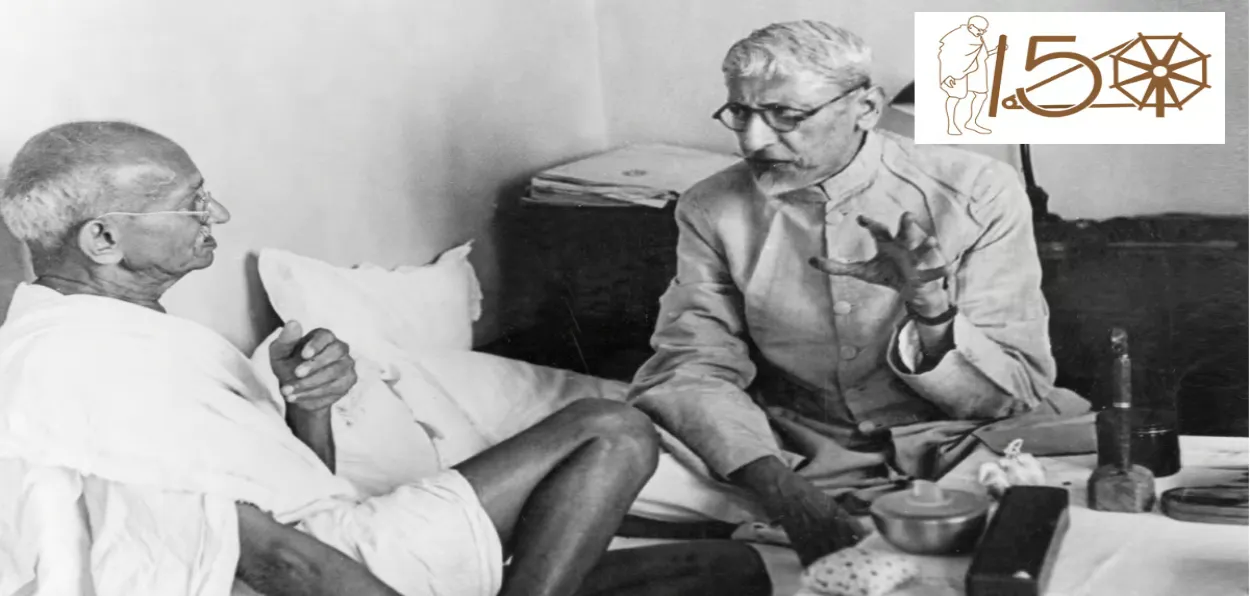
Firdaus Khan
Father of the Nation Mahatma Gandhi was impressed by Islam and it impacted his life. He used to mention it often. He was a believer in Islam's message of equality and brotherhood. Maulana Abul Kalam Azad is quoted as saying that he used to study the Quran to know and understand the teachings of Islam.
Once Gandhiji had said that if he had 72 companions like Imam Hussain, the grandson of Prophet Muhammad in his battle against Yezid in the Battle of Karbala, he would have freed India from the British in 24 hours.
It was this message of equality and brotherhood of Islam that frightened the Europeans. On this Mahatma Gandhi said, "It is said that the Europeans are afraid of the spread of Islam in South Africa, of the Islam that civilized Spain, of the Islam that brought light to Marrakech and taught the Gospel of brotherhood to the world."
Prof. K.S. Ramakrishna Rao in his book Prophet Muhammad writes, "The Europeans of South Africa are afraid of the spread of Islam only because their followers might demand equality with the whites. If this is so, then their fear is justified. If brotherhood is a sin, if equality of blacks with whites is the thing they are afraid of, then the reason for their fear (of the spread of Islam) is also understandable.''
Mahatma Gandhi had great respect and reverence for the Founder of Islam Prophet Muhammad. He would say, ''I was studying the biography of the Prophet of Islam. When I finished the second part of the book also, I felt sad that now I do not have any other book left to study the life of this great genius.
"I am now more convinced than ever that it was not the power of the sword that brought victory to Islam in the world arena, but rather it was the very simple life of the Prophet of Islam, his selflessness, promise-keeping and fearlessness, his love for his friends and followers and his trust in God.
"It was not the power of the sword, but rather these qualities and virtues that removed all obstacles and enabled you to conquer all difficulties. Someone told me that the Europeans living in South Africa are trembling at the spread of Islam, the same Islam that spread light in Morocco and gave the pleasant message of becoming brothers to the people of the world.
"The Europeans in South Africa are not afraid of Islam, but they fear that if they accept Islam the common people will demand equal rights from the whites. Let them be afraid. If it is a sin to be brothers, if they are worried that their racial superiority will not be maintained, then they are right to be afraid, because I have seen that if a Jallow becomes a Christian he cannot be equal to a white Christian.
"But as soon as he accepts Islam, at that very moment he drinks water in the same cup and eats food in the same plate in which any other Muslim drinks water and eats food, so this is the real thing that Europeans are trembling about. (Humanity came alive again)
Mahatma Gandhi expressed his views on Prophet Muhammad on 23 June 1934 at a function organized by Anjuman-e-Fidaye in Ahmedabad. His statement was published in the July edition of Harijan Bandhu published from Ahmedabad.
Mahatma Gandhi said, "My first visit to South Africa was in connection with the affairs of a Muslim firm in that country. And there I had the good fortune to remain in close contact with Muslim friends for years. Because of my relations with Muslims, I felt it my duty to study the life of the Prophet.
"I tried to do this in South Africa. But I did not have enough knowledge then. Imprisonment in India brought me good fortune and thus I got the opportunity to read Maulana Shibli's biography of the Prophet.
Reading the biography, I got the impression that the Prophet was a seeker of truth. He was a man of God. I know I am not telling you anything new. I am only telling you how I was impressed by his life. He had to endure endless persecution. He was brave and feared no other person, but only God.
ALSO READ: Mahatma Gandhi opposed Israel, asked Jews to return to live with Palestinians
"He did what he felt was right without caring about the consequences. He was never found saying one thing and doing another. He did what he felt. If there was any change in his opinion, the next day he would react to the change without caring about criticism or opposition. The Prophet was a faqir. He renounced everything. If he wanted, he could have earned money, but he did not do so."
